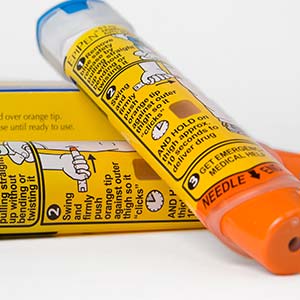Lately, your neck has been feeling tight and you’ve been getting regular headaches. You go to your doctor, who sees nothing physically wrong. He then asks: “What’s going on in your life these days?”
You tell him things are pretty intense. You’re juggling multiple deadlines at work, you volunteered for a second committee at your kids’ school, and you’re helping your dad move into an assisted living facility.
The doctor gently suggests that your neck may be hurting because of stress and feelings of depression around your dad’s changing circumstances. He then speaks to you about the physical symptoms of stress.
The mind-body connection of stress and anxiety
Multiple studies over the years have demonstrated that stress, depression, and emotional events can cause physical symptoms ranging from short-term and moderate pain to severe and chronic pain and discomfort.
Events or stressors that make you anxious or upset, such as a death in the family or the loss of a job, release cortisol in your body causing inflammation, increased heart rate, and narrowing of your blood vessels. Those changes in your body cause you to feel pain.
Additionally, when you experience emotionally difficult times, stress can weaken your body’s immune system and make you more susceptible to colds and other infections.
Furthermore, when you are depressed or feeling stressed, it can be a natural instinct to eat or drink too much and skip out on regular exercise.
Physical symptoms of stress
Here's a list of physical symptoms associated with stress and anxiety. This is by no means exhaustive, but these are some of the most common, from Anxiety.org:
- Stomach ache
- Headaches
- Muscle aches and/or tension
- Heart palpitations
- Rapid breathing (hyperventilation)
- Sweating
- Dry mouth
- Dizziness
- Cold or sweaty hands and feet
- Trembling or shaking
- Fatigue, headaches, and/or stomachaches
Are you experiencing any of these symptoms? If so, consider the possibility you may be currently experiencing stress or anxiety.
What if you don’t feel like you have anxiety?
There is actually another kind of symptom of stress and anxiety. It's called a "cognitive symptom," and it's not uncommon to manifest more cognitive symptoms than physical ones.
Cognitive symptoms include:
- Fear or a constant feeling of dread
- Insomnia
- Negative thoughts
- Difficulty concentrating
- Racing thoughts
- Confusion
- Depersonalization
Therefore, it’s possible to have headaches, dry mouth, or dizziness while sleeping and concentrating just fine. However, if you do have stress or anxiety, chances are you have both kinds of symptoms in varying degrees.
Ways to calm anxiety
If you’re experiencing feelings of stress, sadness, or anger, here's what you can do to decrease the physical symptoms of stress and inflammation, and to feel better emotionally and physically.
- Exercise daily. Exercise releases stress-relieving hormones in your body and improves your overall physical health. If you can’t work up a sweat every day or most days, walking is a great way to feel better
- Get enough sleep. Everyone needs a different amount of sleep to function at their best. If you're having trouble sleeping, talk to your doctor
- Practice relaxation. This can include breathing exercises, mindful meditation classes, guided imagery, tai chi, or yoga
Recognize when it’s time to see a doctor
It's important to differentiate between a lack of emotional well-being, which is often temporary and situational, and more persistent conditions like depression or another mental illness.
If you're addressing the issues that are causing distress and physical pain, and your emotional and physical health doesn't improve, make an appointment with your doctor to discuss potential underlying issues and ways to calm anxiety.




